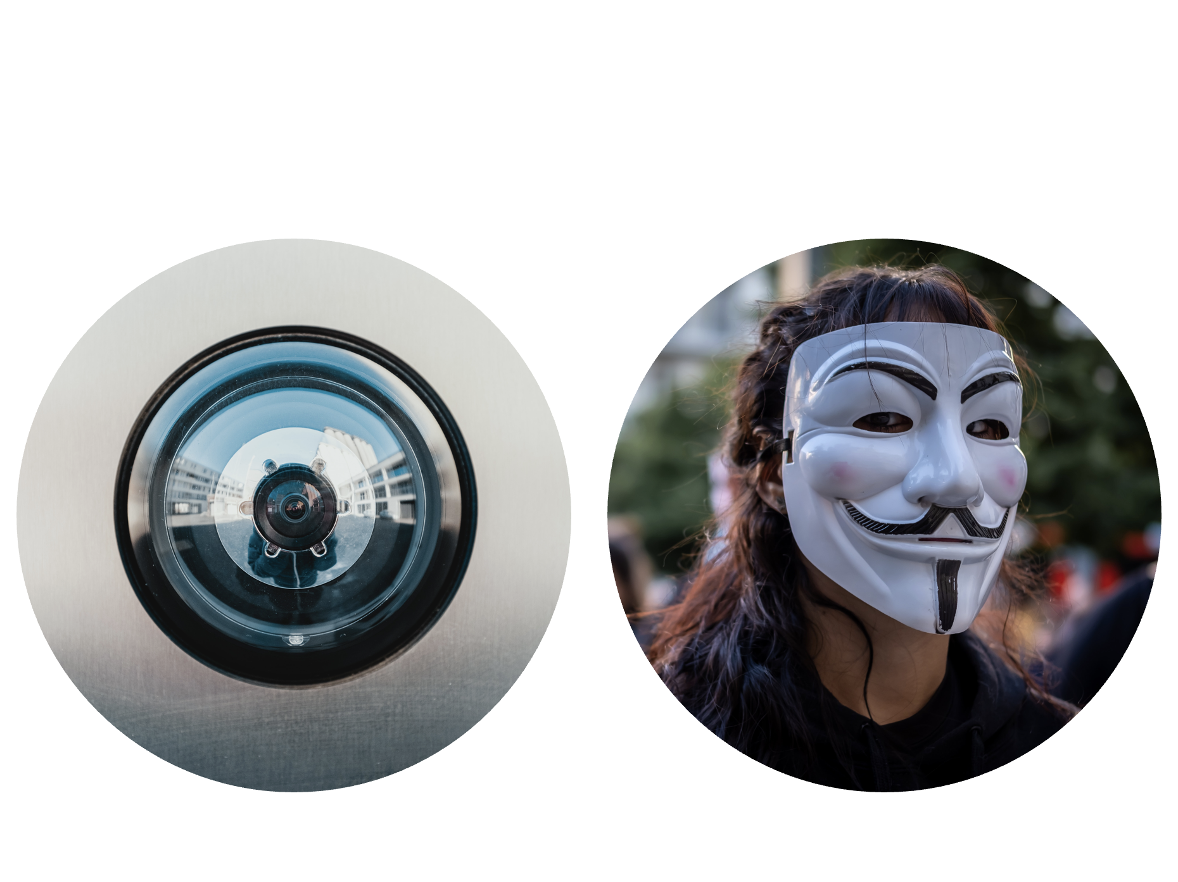I don’t want someone to snap my picture and use it, without my permission, to quickly find my name and details. Globally, many government agencies and companies are highly motivated to do exactly that. It’s a forever war.
At last week’s 29th USENIX Security Symposium, a team from the University of Chicago’s SAND Lab presented ‘Fawkes.’ This software processes photos to obscure your identity from facial recognition systems. Fawkes is the latest effort in the forever-war between individuals who value their privacy and those who want to know who they are.
Facial Recognition is Readily Available
Finding someone’s name from a photo is disturbingly simple. Google’s Chrome browser has a built-in tool for it. Baidu, Yandex, TinEye, Bing, and Soguo offer similar capabilities. Anyone can take your image, upload it to such a platform, and likely get your name returned. Companies like Clearview.ai, specializing in facial recognition systems for law enforcement, can scrape your name and photo from social media sites into a database without asking you. You might pop-up as a person of interest if you closely resemble someone in a crime scene or surveillance photo.
You want to have an excellent profile photo on your social media sites. Especially on professional networking platforms like LinkedIn, your image is your emissary to opportunities. Must a positive image come with a high privacy cost?
Cloaking Yourself: This Fawkes is Clever
Fawkes takes advantage of how facial recognition works. Such identification tools have no concept of what they are “looking at.” To them, everything, including your face, is just a bunch of 1’s and 0’s. If the 1’s and 0’s in a photo are similar enough to the 1’s and 0’s in your Facebook profile picture, voila! It’s you! Fawkes’ trick is cleverly changing a few of those 1’s and 0’s in your profile photos, so your face looks normal to humans while looking like gibberish to a facial recognition tool. The Chicago team calls it “Cloaking.” Here’s an example.

Fawkes is cloaking one of these photos. Chrome finds my name when searching for the picture on the right, but not the picture on the left.
The Latest Facial Recognition One-Upmanship
Simple appearance changes like mustaches or beards might have thrown-off early facial recognition systems. However, Apple’s 2017 launch of FaceID proved that seeing through basic disguises had become a mainstream consumer feature.
Similarly, sunglasses, which hide important features from the recognition algorithms, no longer offer substantial protection. Eric Hess, a senior director with the face recognition company, SAFR, recently wrote in Security Magazine, “A resilient algorithm can adapt when it sees a partially occluded face and still deliver excellent results.”
Well-designed face paint is another tactic for those wishing to dodge Robo-facial-detection. Sudden non-human light to dark transitions often fooled digital identification algorithms. Facial recognition software improved. Face painting got better in return. Today, the facial recognition systems appear to have the upper hand.

With facial recognition piercing through most styles, makeup, and accessories, a typical move is wearing an actual mask. The downside, of course, is making it obvious that you are hiding your face. A legal ban countered face masks in Hong Kong in late 2019.
The COVID-19 pandemic upended laws against public mask-wearing. Facial recognition developers answered quickly. Beijing-based Hanwang Technology Co., which is installing facial recognition systems in China’s schools, recently claimed 95% accuracy in identifying people wearing COVID-protective masks.
Your Digital Self Wears The Disguise
Fawkes joins this forever war with a new strategy. Facial recognition operates in the virtual world. Instead of disguising your real face, Fawkes camouflages your virtual identity. Your physical self then hides in plain sight, wherever it goes.
I wonder whether in the future, when I meet in person with a banker or a doctor, she will look at me through her augmented reality glasses and declare, “I’m sorry. To me, you look like Peter, but you don’t match the real Peter who is on the web.”
Another Unbounded Opportunity
While Fawkes may have high ground today, facial recognition developers will respond. And their response will be met with a counter. It is the same as the struggle between hackers and computer security experts. A security patch is released to counter a new virus. Hackers then concoct another virus to stump that security patch. It is an unbounded cycle.
The result of this tug of war between those wanting to find your identity and those helping you protect it will be continuous opportunities for research and investment. Facial recognition will affect every person on the planet: that’s a big market.
For those who want to defend this part of your privacy, the battle is not lost. But it will be ongoing.
Cover Photo by Guillermo Latorre on Unsplash and Bernard Hermant on Unsplash


